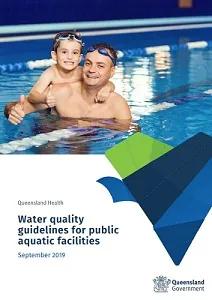Water Chemistry
Points to consider.
The information given in this module follows guidelines issued by Australian Standards, Queensland. Government Health Water quality guidelines for public aquatic facilities and general industry parameters. This will always be Billabong's policy.
There is no definitive set of water chemistry for all pools. Every pool is a separate entity. There is a marked difference in chemical demand for a domestic pool and a commercial pool. We will in most cases be discussing commercial pools, domestic requirements are less demanding but generally allied
.
Training Topics
Exploring the essential topics of swimming pool chemistry is vital. Proper water balance and knowledge of the key chemical components are imperative to maintain a clean, safe, and enjoyable pool.

Halogens, Chlorine, Sanitisers
Exploring the role of halogens as disinfectants reveals that this group of chemical elements, which includes chlorine, fluorine, bromine, and iodine, possesses distinctive properties that render them effective in disinfection applications.
pH
Exploring the significance of pH levels in swimming pools is crucial for maintaining optimal water quality. It's essential to understand how to keep these levels balanced to ensure a safe and enjoyable swimming experience.
Cyanuric Acid (stabiliser)
Cyanuric acid (CYA), commonly referred to as a chlorine stabilizer or pool conditioner, is vital for the upkeep of swimming pools. It's important to understand its significance and learn the best practices for its management.

Totally Dissolved Solids
Total Dissolved Solids (TDS) are crucial for maintaining the quality of swimming pool water. Let's explore the concept of TDS, understand its importance, and learn how to control it effectively.

L.S.I. Saturation Index
The Langelier Saturation Index (LSI), or swimming pool saturation index, is a vital element of pool water chemistry. It's important to understand its significance and the methods to maintain it, ensuring a safe and healthy swimming environment.

Testing
Testing your pool water is essential to ensure water quality. Accurate testing results in a clean and safe swimming environment.







